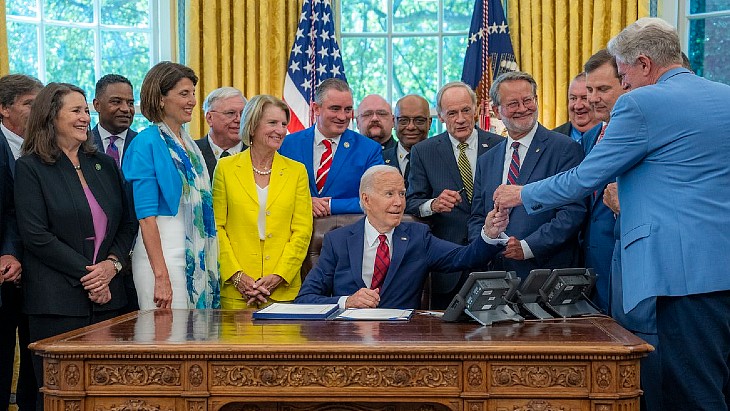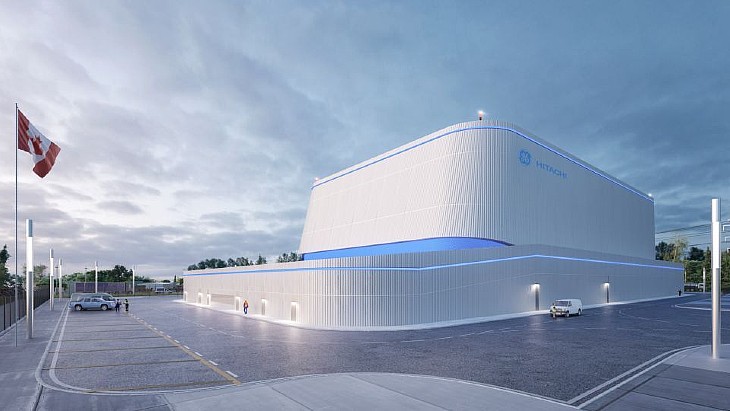US NRC discontinues work on reprocessing regulation
.jpg)
Reprocessing of used fuel from commercial reactors has been prohibited in the USA since 1977, with all used fuel being treated as high-level waste. Industry interest led to a 2013 NRC recommendation to develop the regulatory framework - with a limited scope mostly restricted to risks associated with reprocessing facilities - but in 2016, industry interest in constructing and operating a commercial reprocessing facility had declined and the regulator suspended its work on the issue, the NRC said in the Federal Register notice.
The NRC in March last year held a public meeting with stakeholders to discuss the status of the rulemaking, as well as engaging with organisations and vendors in the advanced reactor community to assess their interest in and specific needs for reprocessing. While industry representatives had voiced their support for continuing the rulemaking, no stakeholders had indicated any plans to submit an application to the NRC for a reprocessing facility in the foreseeable future, it said, and also noted that it would cost an estimated USD2.5 million to complete the rulemaking. "Therefore, while a rule would provide additional clarity for potential applicants, the NRC concludes that it is not warranted at this time," the NRC said.
The American Nuclear Society (ANS) last year urged the NRC to resume the rulemaking. The organisation's CEO and Executive Director Craig Piercy reiterated that call following the NRC decision.
"We're disappointed with the NRC's decision to suspend the rulemaking," Piercy told World Nuclear News. "ANS remains concerned that innovation in advanced reactor designs may be slowed by the absence of a modern, efficient and predictable regulatory framework for the recycling of used nuclear fuel. We urge the Commission to continue evaluating existing regulations and maintain its readiness to reengage in the rulemaking process in the near future."
Should it receive an application for a commercial reprocessing facility, the NRC could use its existing regulatory framework under part 50 of title 10 of the Code of Federal Regulations (10 CFR), Domestic Licensing of Production and Utilization Facilities for any near-term licensing needs, the regulator said. Current US Department of Energy activities to develop reprocessing technologies, particularly for advanced reactors, are aimed at providing a limited near-term supply of high-assay low-enriched uranium - also known as HALEU - for initial advanced reactor designs and do not require NRC licensing.









_50521.jpg)


